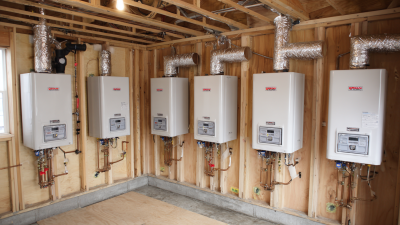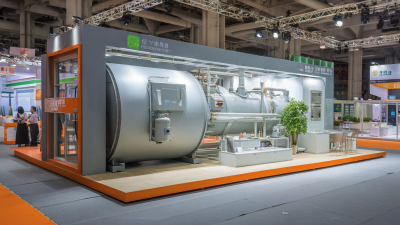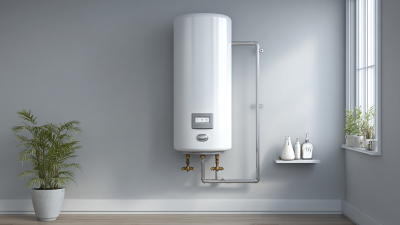
Choosing the right gas water heater for your home is a crucial decision that can significantly impact your energy bills and comfort. According to industry expert John Smith, a leading specialist in residential heating solutions, “Selecting the right gas water heater not only optimizes performance but can also lead to substantial savings over time.” With the myriad of options available, understanding the key features and capabilities of gas water heaters is essential, ensuring that your choice aligns with your specific needs.
In this ultimate guide, we will delve into the vital facets of gas water heaters, providing you with practical tips and insights. From evaluating the size and capacity that best suits your household to considering energy efficiency ratings, each element plays a pivotal role in your decision-making process. With expert advice and user-friendly guidelines, this guide will empower you to navigate the complexities of gas water heater selection, helping you to make an informed investment for your home’s hot water needs.
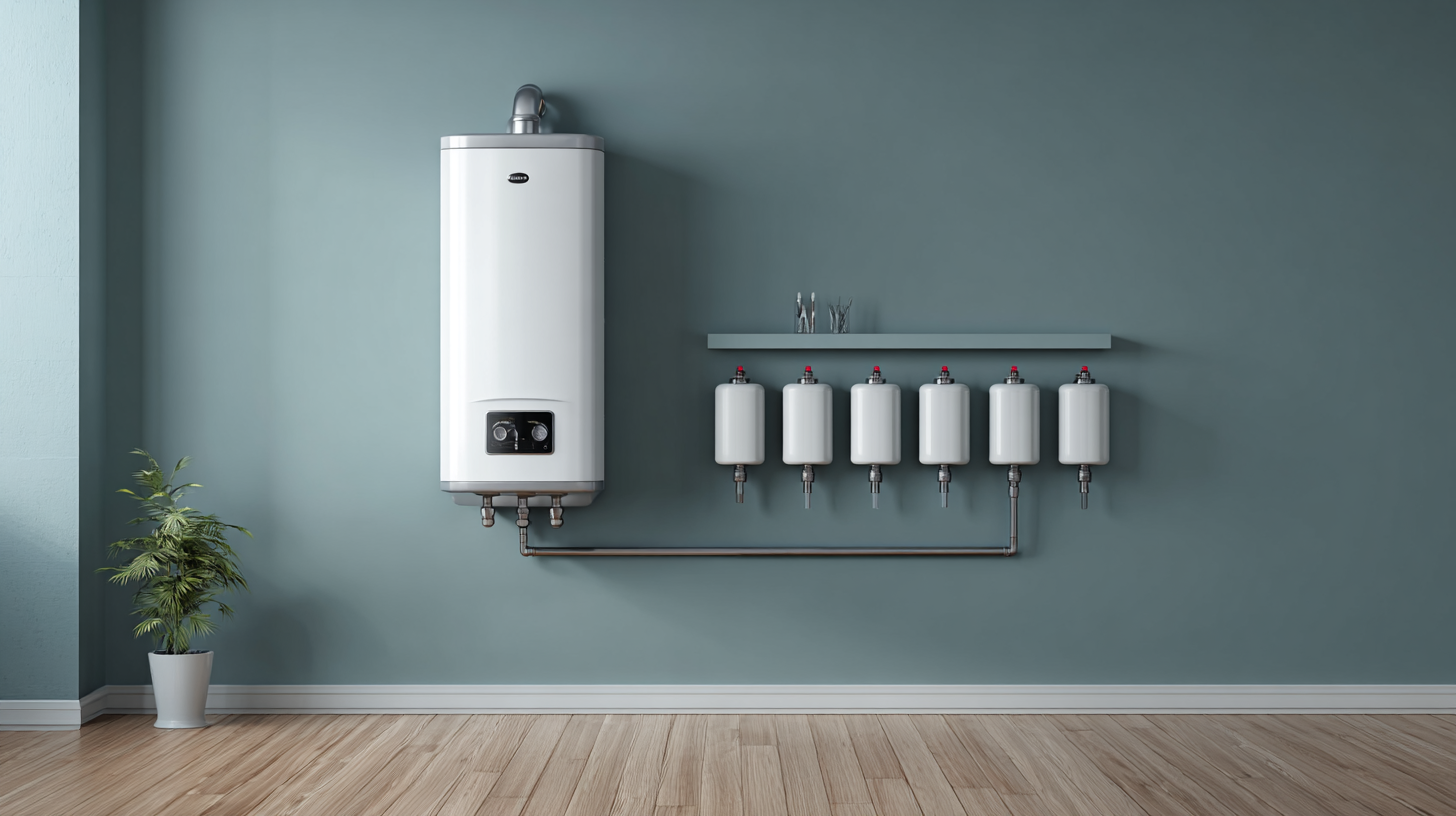
When selecting a gas water heater, it is crucial to understand the different types available and their corresponding efficiency ratings. The primary types of gas water heaters include conventional tank heaters, tankless models, and power vent units. According to the U.S. Department of Energy, conventional gas water heaters have an Energy Factor (EF) ranging from 0.5 to 0.7, while tankless models offer a much higher EF, typically between 0.8 and 0.99. This significant difference indicates that tankless systems heat water on demand and hold the potential for lower energy bills over time.
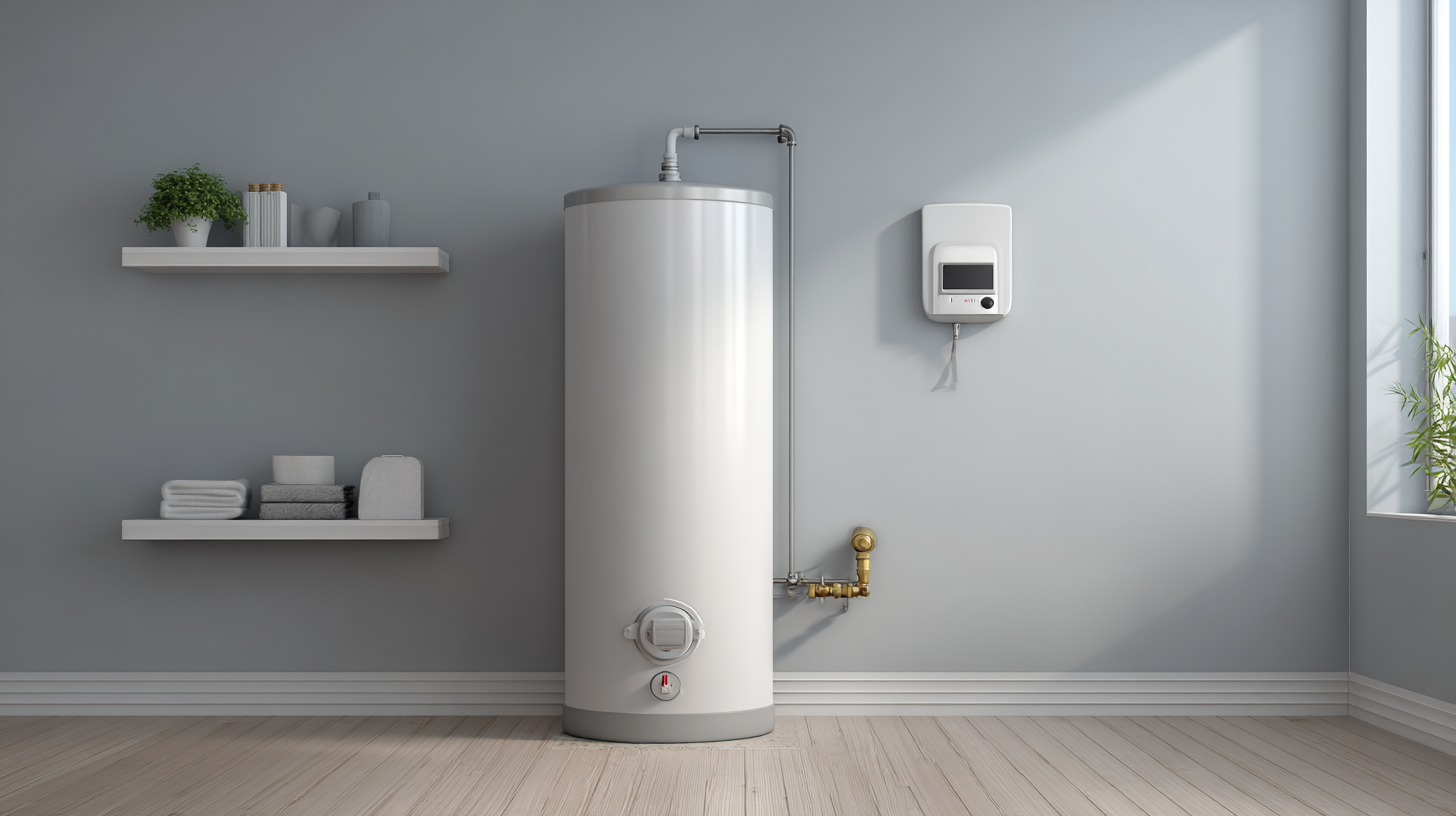
Tips: When evaluating which type is best for your home, consider factors such as your household’s hot water demand and available space. A tankless heater, while more expensive upfront, may be more cost-effective in the long run, especially for larger families or homes with high hot water usage.
Additionally, the efficiency of gas water heaters is also affected by their venting systems and insulation. Power vent heaters, for example, use a fan to expel exhaust gases, improving efficiency and making them suitable for installations in challenging locations. According to the Energy Information Administration, investing in a unit with a higher efficiency rating can save homeowners hundreds of dollars annually on energy costs, making it a critical consideration when choosing the right water heater for your needs.
When selecting a gas water heater, accurately evaluating your household's hot water needs is crucial for ensuring efficiency and comfort. Start by assessing the number of people in your home and their daily hot water usage. For instance, consider how often showers are taken, laundry is done, and dishes are washed. This information will help you gauge the peak water demand and determine the appropriate tank capacity or tankless system that can meet your household's needs.
Consider the first-hour rating (FHR) of the water heater, which indicates how much hot water it can supply in the first hour of use. It's essential to choose a unit with an FHR that comfortably exceeds your household's peak demand. For larger families, a higher-capacity tank or a more powerful tankless unit could be necessary to avoid running out of hot water during busy times. Additionally, think about your fixtures; modern, water-efficient fixtures can significantly reduce your total hot water consumption, influencing the size of the heater you eventually select. By carefully evaluating these factors, you can choose a gas water heater that perfectly aligns with your family's hot water requirements.
This chart illustrates the recommended Gallons Per Minute (GPM) based on household size, helping homeowners select an appropriately sized gas water heater based on their hot water needs.
When selecting a gas water heater for your home, two critical factors to consider are energy efficiency and safety standards. Energy efficiency is paramount, as it directly influences your utility bills and environmental impact. Look for models with high Energy Factor (EF) ratings, which indicate how effectively they convert fuel into hot water. Additionally, features such as programmable thermostats or eco-mode settings can further enhance efficiency, minimizing energy use during periods of low demand.
Safety standards are equally important when choosing a gas water heater. Ensure the unit complies with local building codes and is certified by recognized safety organizations. Key safety features to look for include an automatic shut-off valve, which prevents gas leaks, and a flame arrestor to minimize fire risks. Moreover, venting options play a crucial role in safely expelling exhaust gases. Opting for models with sealed combustion systems can improve indoor air quality by drawing air from outside for combustion, making them a safer choice for homes, especially those with attached garages or basements.
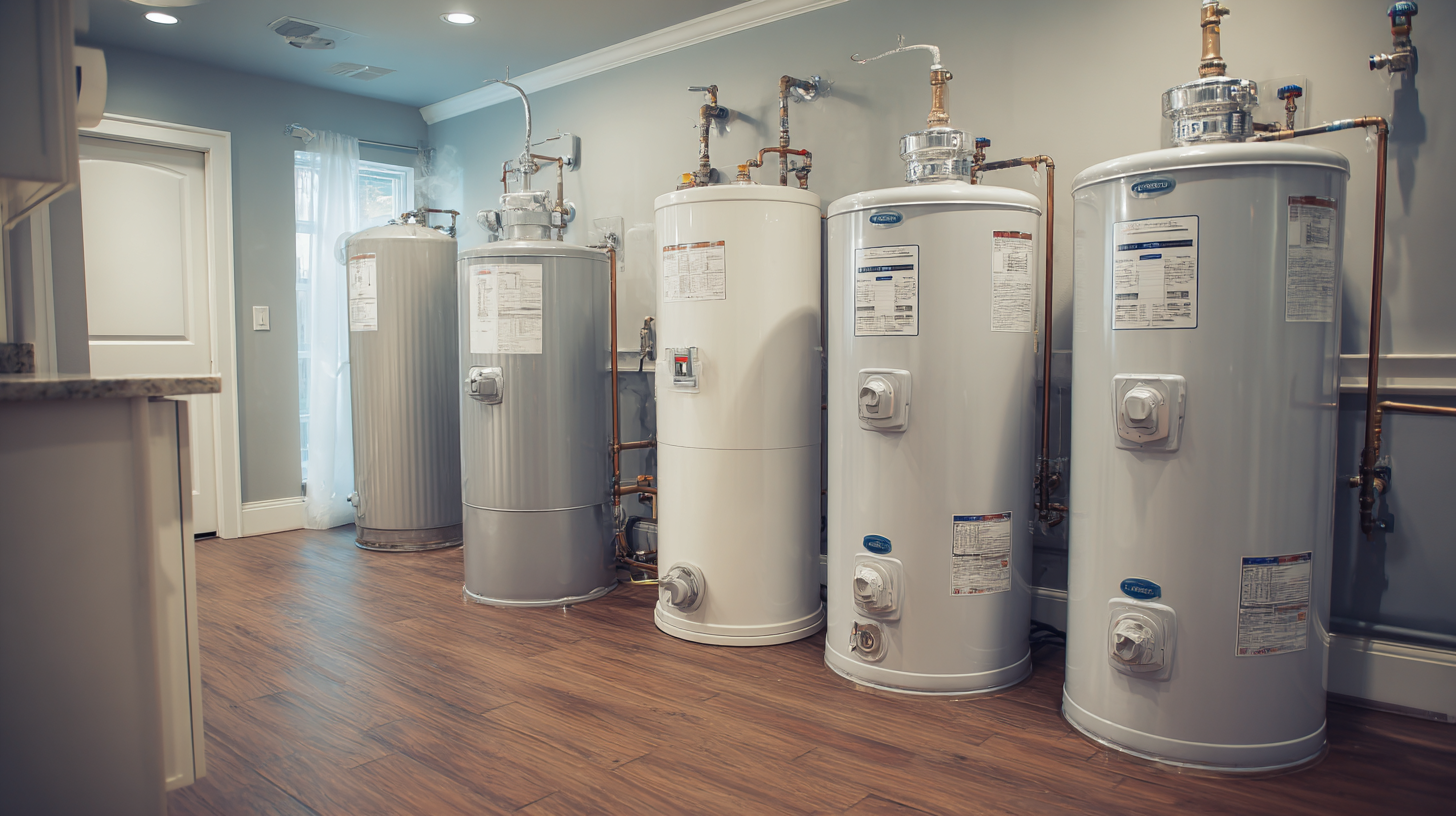
When selecting a gas water heater for your home, understanding the installation costs is crucial. Initial expenses can vary widely, influenced by factors such as the complexity of the installation, local labor rates, and the type of heater you choose. A professional installation may seem like an added expense upfront, but it ensures safety and compliance with local codes, potentially saving you from costly repairs or hazards down the line. It's essential to gather detailed quotes and factor these costs into your overall budget to avoid unexpected financial strain.
Maintenance is another critical element that impacts long-term satisfaction with your gas water heater. Regular upkeep can prolong the lifespan of your appliance and enhance its efficiency, ultimately leading to lower energy bills. Simple tasks like flushing the tank to remove sediment buildup or checking the anode rod can prevent significant issues. Evaluating the maintenance requirements of different models before purchase can guide you towards a heater that aligns with your willingness to invest time and resources into its care. Prioritizing both installation costs and maintenance will help you make an informed decision that meets your home’s needs effectively.
When selecting a gas water heater, it's crucial to compare various brands and their performance metrics. Based on data from the 2023 Water Heater Report, brands like Rheem and A.O. Smith consistently outshine their competitors in terms of efficiency and longevity. Rheem's EcoSense series, for example, boasts an impressive Uniform Energy Factor (UEF) rating of 0.82, indicating a higher efficiency in energy use compared to average ratings around 0.60 for standard models. A.O. Smith follows closely with their Hybrid models, achieving a notable balance between performance and cost-effectiveness.
Tips: When evaluating the performance of gas water heaters, focus on UEF ratings, warranty length, and customer service reputation. A longer warranty often reflects the manufacturer’s confidence in their product. Additionally, look for brands that offer robust support and responsive service options, as these factors can save you time and money down the line.
Another key aspect to consider is the heater's capacity. While a 40-gallon unit may suffice for smaller households, families may benefit from a 50-gallon or larger unit. According to industry guidelines, households with four or more members typically require around 60-80 gallons of hot water per day. This means selecting a model that not only meets your immediate needs but also accommodates potential future growth.
Tips: Before making a final decision, assess your household's peak usage times and consider gas line capacity to ensure optimal performance. Furthermore, consulting professional reviews and user testimonials can provide insights into real-world performance that goes beyond manufacturer claims.
